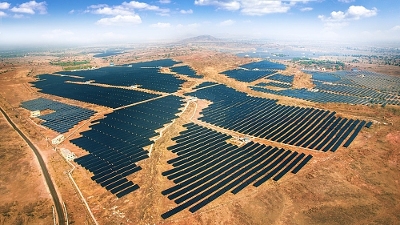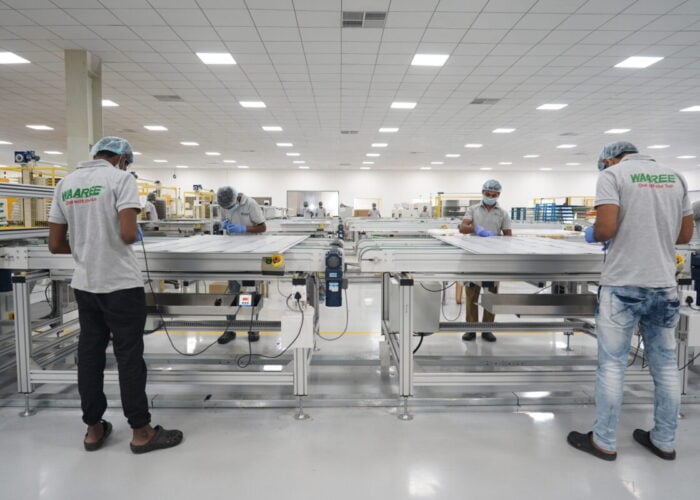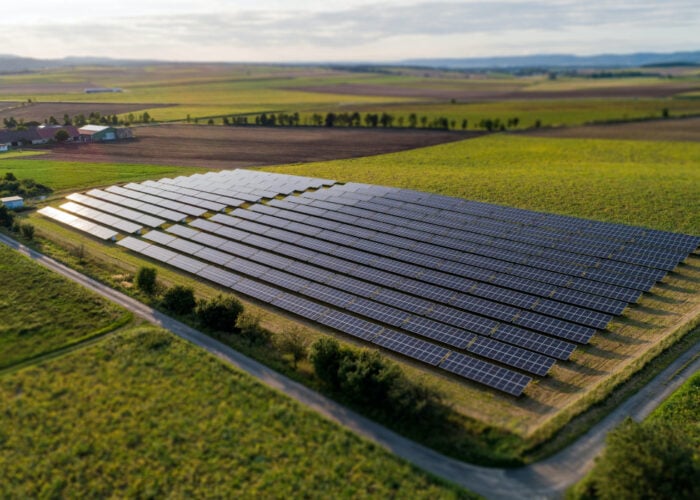
Azure Power has submitted the lowest bid of INR3.14 (US$0.048) in a 250MW solar auction under the Domestic Content Requirement (DCR) held by Indian utility NTPC.
The project, for which PV equipment must be sourced locally, can be set up anywhere in India, but developers are liable to identify land and transmission themselves.
Unlock unlimited access for 12 whole months of distinctive global analysis
Photovoltaics International is now included.
- Regular insight and analysis of the industry’s biggest developments
- In-depth interviews with the industry’s leading figures
- Unlimited digital access to the PV Tech Power journal catalogue
- Unlimited digital access to the Photovoltaics International journal catalogue
- Access to more than 1,000 technical papers
- Discounts on Solar Media’s portfolio of events, in-person and virtual
Or continue reading this article for free
Vinay Rustagi, managing director, Bridge to India, told PV Tech: “This is probably the last DCR based project development tender. There was relatively much less competition because of challenges in procuring domestic modules within a tight timeline (revised subsequently to 12 months), no solar park availability and inter-state open access power transmission. The winning tariff, although 29% higher than the lowest tariff of 2.44 seen so far, is still fairly aggressive bearing in mind these challenges and higher capital cost.”
The DCR policy is due to come to an end on 14 December this year after the WTO ruled against it.
The bidders in this local content auction were as follows:
| Developer | Tariff (INR/kWh) | Capacity (MW) |
|---|---|---|
| Azure Power | 3.14 | 250 |
| ReNew Power | 3.15 | 150 |
| Waaree Energies | 3.94 | 25 |
| Mahoba Solar | 4.44 | 250 |
| Canadian Solar | 4.95 | 100 |
Azure Power also turned heads in September when it won 260MW of projects in a Gujarat solar auction with a price of INR2.67/kWh (US$0.041).
The firm has also won a range of rooftop projects of late for Ministry buidings and Railway infrastructure.
Article Revised: references to 3-month commissioning deadline removed.







